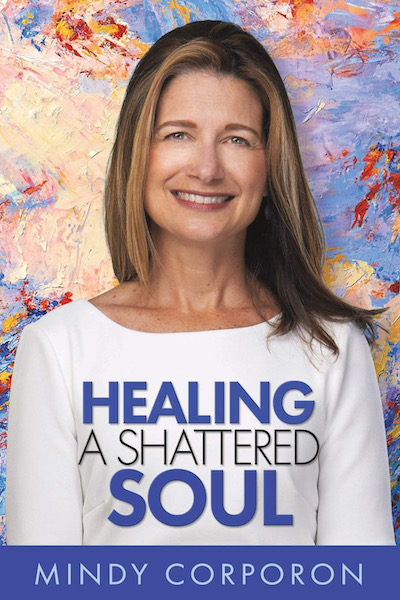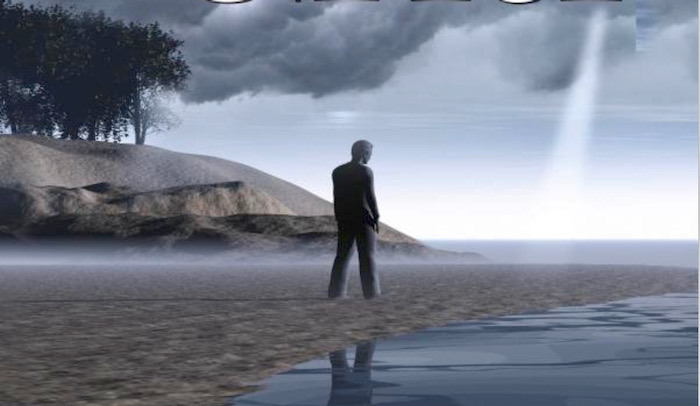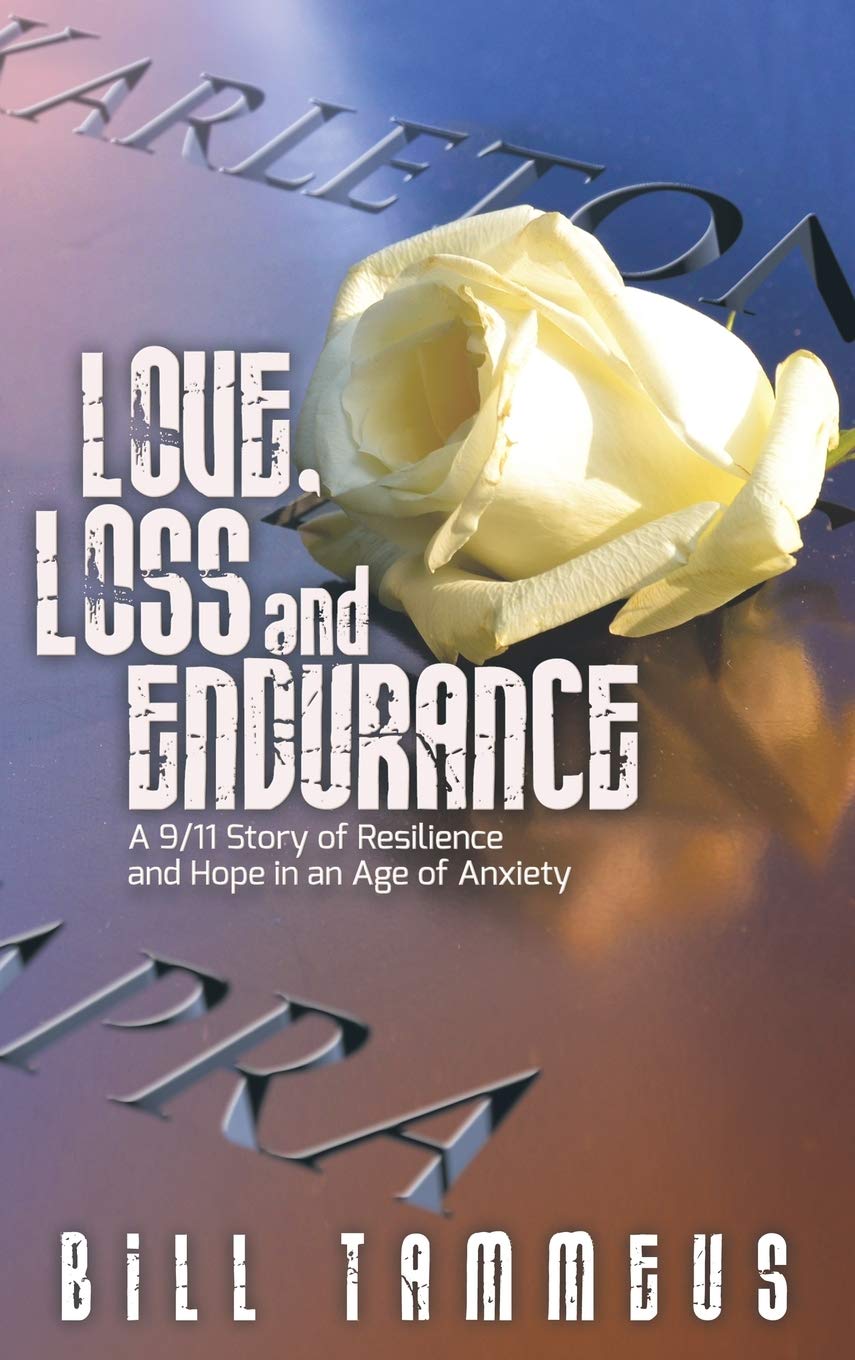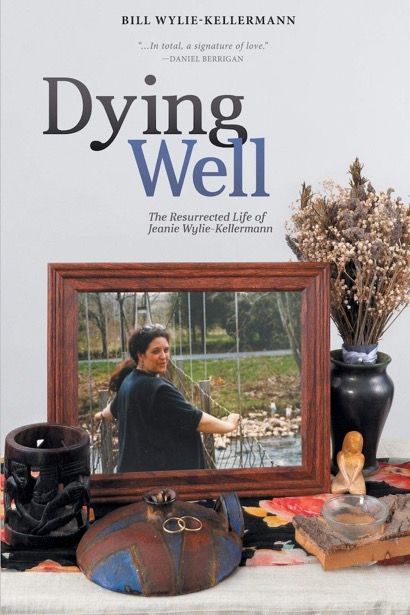By DAVID CRUMM
Editor of Read the Spirit magazine
We listen to our readers. We listen to our writers. We listen to friends and family, too. We listen because we truly have formed a community of writers and readers around Read the Spirit magazine’s 750-plus weekly issues. Each week, we hope that our columns contribute to healthy community conversations.
Sitting at the editor’s desk, I listen very carefully. And, over the past week, here is what I heard loud and clear: People are grieving. I counted seven different, significant conversations about grief—one a day.
Why now? Part of this weight is seasonal, culminating each year in the upcoming Memorial weekend. Part of this is the on-gain off-again COVID pandemic, which is playing havoc with our deep desire to gather together once again. In my own family, COVID recently caused the eleventh-hour cancelation of the funeral of a beloved matriarch, because that event was on the verge of becoming a super-spreader event. Part of this season of grief arises from the seemingly endless trauma of our polarized culture—culminating in tragedies like the Buffalo mass shooting. Part of this is an accumulation of daily images of war crimes in Ukraine.
Part of this—
Well, whatever is causing this season of grief—my column today is not about sadness.
This is about resilience.
The most profound of my seven conversations was sparked by a long email from the musician, cancer survivor and patient advocate Elaine Greenberg. This is a woman beloved by thousands across southeast Michigan—a woman who my wife and I have known for decades along with her late husband Shelly. In my nearly five decades as a journalist, I have never met a more creatively resilient person than Elaine—and that’s saying something! She turned life-threatening cancer into an ongoing campaign to help other families touched by cancer. She hosted concerts to raise funds for her causes. Some years ago, I joined with our Publisher John Hile in bringing a group of high school students to Elaine’s home for an impromptu afternoon concert and conversation around her piano—because John and I wanted these young people to experience what a truly resilient life of faith looks like. Elaine dazzled the kids! We shot video of the young people interacting with Elaine that day and a number of those kids, who now are adults themselves, still talk about that inspiring day with Elaine.
What hit me like a brick to the forehead in Elaine’s email was her opening sentence. She wrote that, especially after the tragedy in Buffalo, “I have to admit I am overcome with emotion.”
I thought: Elaine!? The strongest woman in any room is overcome?! Then, in the next few sentences, she proceeded to describe how much sad events this spring have made her ponder the loss of Shelly late last year.
The reason I am telling you Elaine’s story is because of what Elaine wrote next. After sharing her grief with me, Elaine did what our Abrahamic spiritual traditions all teach us to do:
She reached out.
She reached out to me.
She put me on the spot. I could envision her finger pointing right at me, asking for me to help not only her—but all of us who are feeling this same weight this spring.
Why did she ask me to help? “Because I know you have a vast library of books on the subject,” she explained.
Therefore, she concluded, “I am asking you for your recommendations on a well-written book on grieving and related caregiving. If you can recommend anything, it would help.”
And anyone who has ever known Elaine knows what happened next.
I agreed to help.
Five Best Books for Rediscovering Resilience in the Midst of Grief
Here are the five books I most frequently recommend to grieving friends—but before I list them I want to explain why I regularly suggest these books.
At the core of all five books is the Abrahamic wisdom that life should not be lived alone. Judaism, Christianity and Islam all teach that we are made by God to reach out to others. That timeless spiritual resource is built into many customs we all follow in our faiths. After a death, Christians gather for “visitation” and services and often a meal. Jews like Elaine not only gather for services, but also spend days “sitting shiva.” And for Muslims? The care of the dead and the grieving family is truly a community concern. We could quickly expand this lesson to the world’s other great religious traditions, but I know Elaine is waiting for me to get to those recommended books. So, I won’t belabor this interfaith truth.
If you click the following links to visit these books’ Amazon pages, you can learn a whole lot more about the books themselves, the authors, what other readers have said about them. What I am going to share briefly about each book, right here, is my reason for including it in this list.

Rodger Murchison prepares for a television interview about his book. Over the last decade, Rodger has spoken about spiritual resilience in the midst of grief to groups across the U.S., in Latin America and in Europe. (Click on this photo to visit the book’s Amazon page.)
‘Guide for Grief’
The spiritual power of this short book began with the remarkable coincidence of its origin.
Not long after we established this publishing house, Publisher John Hile and I participated in a week-long retreat at Iona Abbey in Scotland. One of the other pilgrims participating in that week was a Southern pastor with a deep, resonant voice who wound up walking into the Iona library on the same morning John and I were sitting at the library’s enormous hardwood table, planning future projects. After a casual greeting among Americans in a distant land, Rodger settled into a seat at the table. His engaging voice and manner immediately moved our conversation to a deeper level. He revealed to us that one reason he was making this pilgrimage to Iona was to prayerfully discern what he should do with a book manuscript, which was based on his many decades of counseling individuals and families through grief.
“I’ve been praying that God would lead me to a publisher,” Rodger said.
In the words of our columnist Suzy Farbman: It was a GodSign.
As he has proven through his worldwide travels, teaching groups about the complex issues surrounding grief, Rodger is—to put it quite simply: “the real deal.” He has the warm personality of down-home pastor, but he also has scholarly credentials that include Princeton and Oxford. He has been invited to lead groups across the U.S., in Latin America and in Europe.
That’s why the first choice for coping with grief—a recommendation all of us in the publishing house team have made repeatedly over the years—is Rodger’s Guide for Grief: Help in surviving the stages of grief and bereavement after a loss.
.
‘Never Long Enough’
Whenever our publishing house team hears of a friend moving through the process of hospice with a loved one, our first recommendation is a unique book developed by Rabbi Joseph Krakoff, head of the Jewish Hospice and Chaplaincy Network, and artist Michelle Sider. We specifically recommend the hardcover version of Never Long Enough: Finding comfort and hope amidst grief and loss.
That’s because this book, which might look like a children’s picture book at first glance, actually is designed to have family members of all ages talk about the illustrations and brief texts with their loved one. Many families have added to the book, perhaps jotting notes on the pages about fond memories that arose—or even placing photos or hand-drawn pictures between these covers. If you’re personalizing this book in that way, then you definitely want the hardcover edition so this becomes a “forever book.”
But don’t just take my word for it. One of the most-helpful reviews on the book’s Amazon page describes the experience:
This beautiful book hugs and comforts while reminding the reader of tender and cherished moments. The art of the images and words has created a treasure to cherish and read throughout the process of grieving. Never Long Enough will be a wonderful guide to revisiting special memories over the years for all those we cherish and keep with us in memories. A wonderful guide to help countless people through the human experience that is challenging and necessary. It reminds us that we all have these special remembrances of our loved ones. Everyone who grieves needs to feel comfort and Never Long Enough truly reminds us all that we all have each other and the sadness we feel with loss is meant to be taken carefully as we remember.
.
 ‘Love, Loss and Endurance’
‘Love, Loss and Endurance’
and
‘Healing a Shattered Soul’
Whenever our publishing house team hears of people grieving a tragedy as senseless as the Buffalo supermarket shooting, we know that we are grappling with the additional trauma of violent extremism and unthinkable hatred unleashed in our world.
Then, our first two recommendations are:
Bill Tammeus’s Love, Loss and Endurance: A 9/11 Story of Resilience and Hope in an Age of Anxiety.
And Mindy Corporon’s Healing a Shattered Soul: My Faithful Journey of Courageous Kindness after the Trauma and Grief of Domestic Terrorism.
 Both books are memoirs by authors whose hard-earned wisdom about resiliency in the midst of grief comes in the wake of personal tragedies. Bill is one of the nation’s top journalists specializing in covering the role of religion in our lives. He lost a relative in the 9/11/2001 terrorist attacks that were aimed at New York City and Washington D.C. Mindy Corporon now is known nationwide, as well, for several programs she has developed to encourage kindness and resiliency both inside companies and throughout local communities. Mindy’s young son and her father were killed by an antisemitic gunman who randomly attacked people he thought were Jewish in the Kansas City area.
Both books are memoirs by authors whose hard-earned wisdom about resiliency in the midst of grief comes in the wake of personal tragedies. Bill is one of the nation’s top journalists specializing in covering the role of religion in our lives. He lost a relative in the 9/11/2001 terrorist attacks that were aimed at New York City and Washington D.C. Mindy Corporon now is known nationwide, as well, for several programs she has developed to encourage kindness and resiliency both inside companies and throughout local communities. Mindy’s young son and her father were killed by an antisemitic gunman who randomly attacked people he thought were Jewish in the Kansas City area.
Both authors also explore one of the most important truths about grieving: The process goes on for many years. Long after neighbors, friends and coworkers may have forgotten that you have experienced a death, you’re still remembering. That’s true at least through the next year of “firsts”—first birthday, first anniversary, first holiday seasons. And, as Bill explains so powerfully in his memoir—some families grieve for decades.
Finally, both authors model resiliency in the way their traumas spurred them to community action in many forms. At the end of Bill’s book, for example, readers tell us they are inspired to find his detailed section on “unplugging extremism.” These books take readers on the journey through many forms of grieving—and many forms of hopeful action as a result.
What have readers told us about these books?
Rabbi Arthur Nemitoff, Senior Rabbi of The Temple, Congregation B’nai Jehudah in Overland Park, Kansas, writes about Mindy’s book:
Each of us will struggle at some time in life. Some of our struggles are monumental as in Mindy’s story. Others are shattering in other ways: a failed relationship, economic downturn, the death of a loved one. Regardless of what causes us to struggle, Healing a Shattered Soul can help us discover what we can do to find a way to crawl through what Psalm 23 calls the “valley of darkness.” As Mindy shares her personal journey, she does not preach at us. Rather, she opens the door so that we can walk alongside her, revealing that loss and love, hurt and healing, faith and freedom all go hand in hand. As she was advised by her pastor to “keep listening,” Healing a Shattered Soul is a must-read for all of us who need to keep listening to find healing and hope in a broken world.
About Bill’s book, best-selling author Brian McLaren emphasizes the importance of Bill’s “unplugging extremism” section:
Near the end of this beautiful, powerful book, author Bill Tammeus offers eight ways that each of us can help build a more peaceful world, less divided and devastated by violence in the name of religion. Those eight insights alone would be worth the price of this book. But by reading the whole story of love, loss and resilience that frame those insights, you will be not only a wiser person but also a more compassionate person as you turn the final page.
.
 ‘Dying Well’
‘Dying Well’
Another book we often recommend to readers struggling with the flood of anxieties, emotions, spiritual questions and decisions surrounding a death is Dying Well: The Resurrected Life of Jeanie Wylie-Kellermann.
As a journalist, I connected in various ways with both Jeanie and Bill Wylie-Kellermann over many years. I respected the journalism they each produced in various formats—as well as their public activism in support of faith-and-justice issues. As Jeanie was dying of cancer, I was inspired by the way their family reached deep into their spiritual roots to choose those general approaches and specific rituals that made Jeanie’s passing a community-wide example of grieving that built resilience into each step of the journey.
This book is their story.
A great summary of the book can be found in the first eight words Bill wrote: “This book is verily an event of community.” That choice of “verily,” which evokes memories stretching back to the age of Chaucer, was no accident.
Bill begins by chronicling Jeanie’s robust life and then he shares many equally inspiring stories about the seven-year progress from diagnosis of a glioblastoma until her death. In “verily” on that first page, Bill is signaling to readers that this book is as much about memory as it is about this couple’s cutting-edge, social-justice activism.
Readers have repeatedly praised Dying Well as a profound love story about the two writer-activists who led a tumultuous life at the barricades of many justice issues—and then shared in an equally inspiring quest for healing and eventually after many years a graceful death. Ultimately, though, this book expands into an invitation for readers to remember: Remember a real love story you’ve known of an impassioned couple who became impassioned parents. Remember the best of family life. And remember, when the arc of life is closing its path in this tangible world—remember how loving families used to care for the dying and also the mourners in the humble surroundings of home.
.
And so …
AND SO, Elaine, how did I do with this next installment of our conversation?
And to all the others with whom I have spoken about grief over the past week or so, perhaps you will find some resources in these recommendations that may help you.
If you do find these books helpful, please take a moment to visit their Amazon pages and add your own review. That ongoing string of reader reviews becomes another form of conversation that welcomes the whole world into this healing process.





David, I wrote a great comment,dropped the mouse and lost my letter to you. In any event, in answer to your question—you did well. So glad I reached out to you—am so ready for those books and know because you recommended them I will gain a great deal of healing and wisdom from them. Give me time–I read every word–never learned to speed read–and I will send you my thoughts. In the meantime thank you for writing such beautiful words about me—I need to be reminded of my past and what a strong woman I am. Thanks David for the confidence boost –each day is a challenge and sometimes the challenges become overwhelming so we reach out to friends like you and know that you will be there for me as well as other readers.
Thanks
Elaine
Thanks David. We are all grieving right now. We all need this.